Many drivers who love getting behind the wheel still have no idea what’s going on under the hood.
To help bring you up to speed, here’s our ultimate guide to essential car parts in a manual, fuel-powered car. Find out what they do, how they can go wrong and whether you should attempt fixing them yourself.
Jump to:
Battery
Distributor
Alternator
Radiator
Thermostat
Spark plug
Ignition coil
Tyres
Spare tyre
Shock absorbers
Brakes
Air filter
Catalytic converter
Clutch
Gearbox
Water pump
Air conditioning compressor
Battery
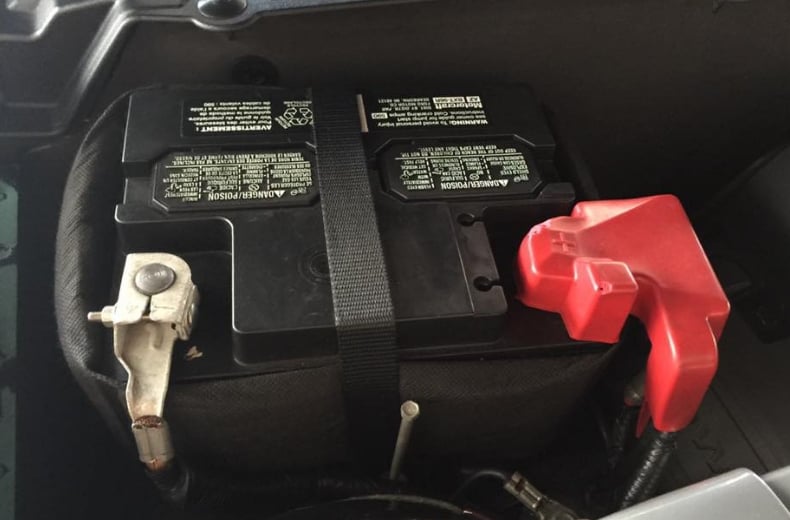
What is a car battery?
A critically-important part of your car’s electrical system, the battery starts the engine when you turn the key in the ignition. It provides a back-up source of power for in-car electronics should the alternator need help.
Car battery problems
Unfortunately, plenty can go wrong with a battery, so it’s a good idea to know what to do should the worst happen.
If your car won’t start, it could mean your battery’s flat. Jump start your engine from either another vehicle or an engine jump starter, and your battery will then recharge during the journey. The longer the journey, the more recharge.
If your engine still won’t start, then the cause probably lies elsewhere and will need diagnosing by the RAC (call 03301 598 751) or a reliable garage.
However, if it does start OK, you need to find out why the battery went flat in the first place. There can be several reasons for this, the most common being that the lights were left on, causing the battery to drain.
Otherwise there could be a drain somewhere in the vehicle's electrical system, or of course, the battery itself is faulty and will not hold its charge. It's worth having the battery and charging system tested professionally as this will include a check for any excessive drain in the system.
Lack of use will also cause a battery to go flat after a period of time so if you have a vehicle that is only used infrequently such as a classic car that you save for special occasions then its worth investing in a battery charger/conditioner. This will keep the battery topped up and prevent sulphation in the battery caused by long periods of inactivity.
Experts recommend replacing your car battery somewhere between every three to five years
Can I fix a car battery myself?
You won’t be able to fix a battery yourself but you’ll be able to charge or jump-start a battery low on charge or buy a replacement if it’s corroded or faulty.
For a flat battery: Here’s a video guide to jump starting your car.
For a battery replacement: Enter your reg here to find the right battery for your car.
Not sure: If you need assistance you can call the RAC on 03301 598 751 whether you are a member or not.
Or: Find a garage.
Distributor
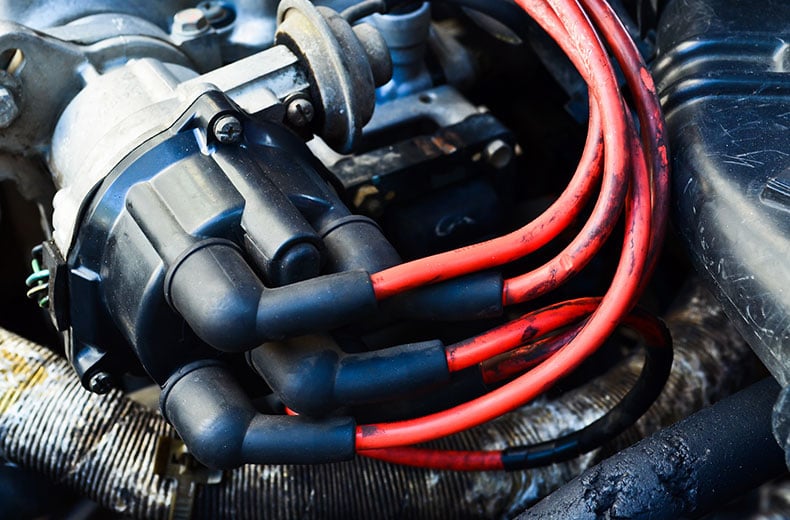
What is a car distributor?
They direct high voltage from the ignition coil to the spark plugs as and when needed. Although many modern cars don’t actually have distributors, for those that do they’re a key component of the ignition process.
Car distributor problems
As well as general wear, the most likely thing that’ll go wrong is a build-up of dirt and other engine sludge in the distributor cap causing faults. Make sure you clean it regularly.
Can I fix a car distributor myself?
It might be that just your distributor cap needs fixing, which is easily done. However, mechanics recommend changing both distributor cap and rotor at the same time regardless of condition.
Alternator
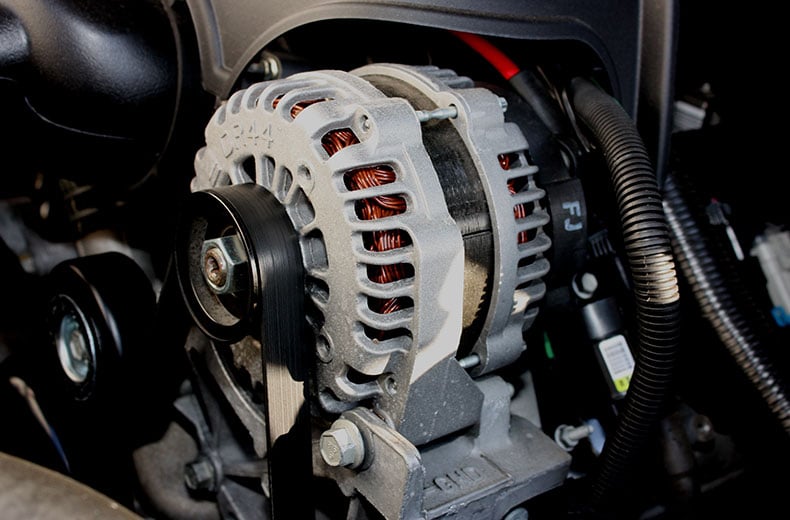
What is a car alternator?
While the battery takes care of actually starting your engine, the alternator powers all the other electronics that keep your car running like headlights and windscreen wipers. Your alternator also keeps the car battery charged.
Car alternator problems:
Perhaps unsurprisingly considering its importance, quite a lot can go wrong with an alternator. A dead one will mean the battery warning light comes on, the engine eventually stalls, and your car dies – bad news.
Unfortunately, it’s likely you won’t get much warning that your alternator is about to crash out, but thankfully it’s often a single component of the alternator that goes, so you don’t have to replace the entire thing.
Problems related to the alternator include worn or loose drive belts, worn bearings and connector faults.
Can I fix a car alternator myself?
Replacing an alternator can be straightforward on some older models, providing you have the necessary tools and knowledge to carry out the job, but on others, it's a garage job only.
There is a safety risk involved when replacing an alternator so you must be confident that you are able to carry out the job correctly before attempting it.

SALE – up to 40% off*
Roadside & Recovery from £5.29 a month*
• Cheaper than AA Price Promise or we’ll beat by 20%^
• We get to most breakdowns in 60 mins or less
• Our patrols fix 4/5 breakdowns on the spot

Radiator
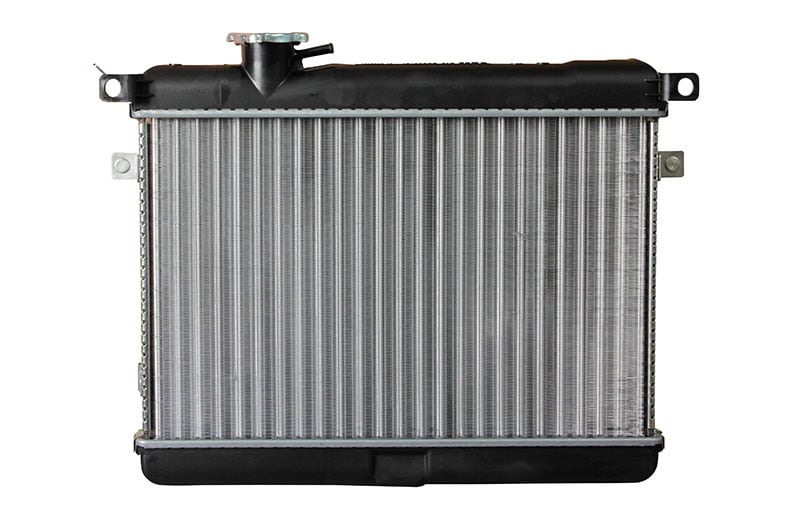
What is a car radiator?
An integral part of your engine’s cooling system, the radiator prevents your car from overheating by cooling down hot coolant coming from the engine, before sending it back in.
Car radiator problems
Happily, radiators tend to last around a decade on average. That doesn’t mean you’ll definitely be free of problems though as leaking, rusting, overheating and mineral deposits can all leave them with faults.
If your temperature gauge is showing a high temperature or if coolant is leaking onto the ground beneath your vehicle, it could be a sign there’s an issue with your radiator that needs to be taken care of.
Can I fix a car radiator myself?
That depends. If you’re simply running low on coolant, then top it up - watch our video guide to find out how. Grab some coolant here if you haven’t got any handy.
However, if your car radiator is leaking, often the best way to fix it is to simply replace it with a new one and that’ll require a professional, so find a local garage.
Thermostat
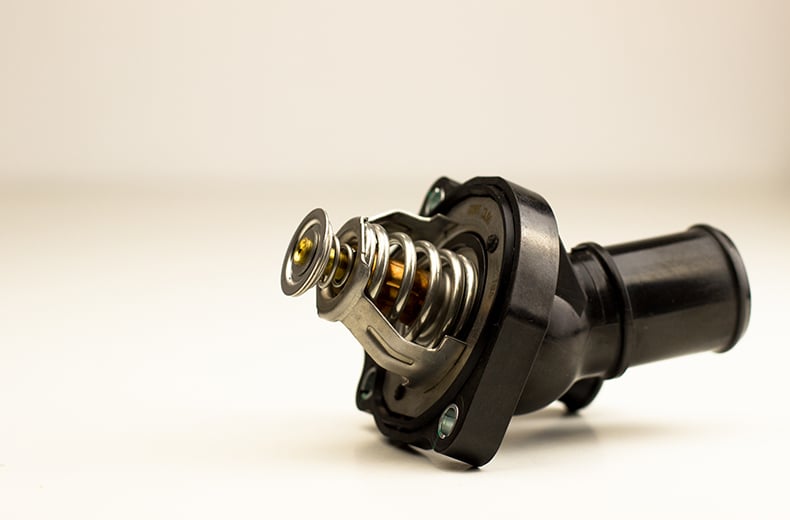
What is a car thermostat?
Just like your thermostat at home, the one in your car helps regulate the temperature of your engine, managing the flow of coolant as needed to let your engine warm up faster or cool down if it’s overheating.
Car thermostat problems
There are usually two things that go wrong with thermostats – they either get stuck in the open position or they get stuck in the closed position.
You’ll notice a thermostat stuck in the closed position much quicker, as the temperature gauge in your car will quickly run into red and you could damage your engine in a matter of minutes if you keep driving.
Whatever’s wrong with your thermostat you’ll need to replace it as soon as possible as you won’t want to drive anywhere with a faulty thermostat even if an initial inspection doesn’t look too bad.
If you need assistance you can call the RAC on 03301 598 751 whether you are a member or not.
Can I fix a car thermostat myself?
Replacing the thermostat on modern vehicles should be left to professional repair garages.
Spark plug (petrol engines only)
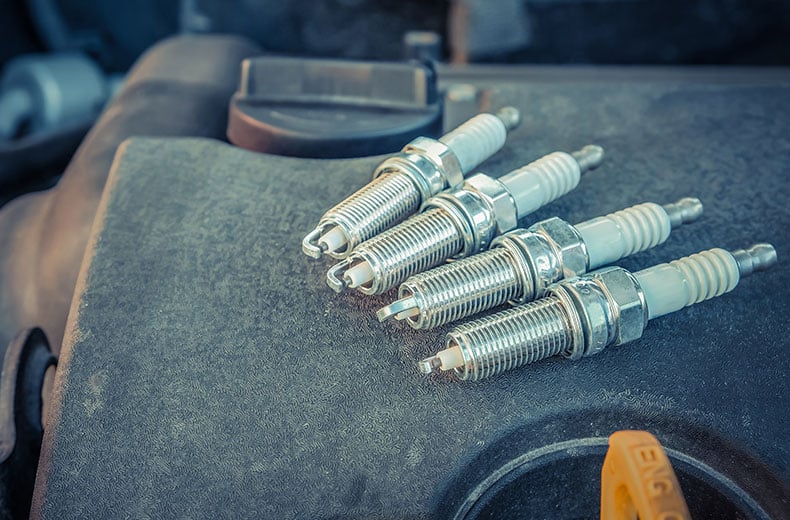
What is a spark plug?
A spark plug is part of your car’s ignition system – providing the spark that sets off the combustion in the engine which allows your car to move.
Spark plug problems
A well-used part of your car, spark plugs take a lot of wear and tear and the electrodes in the plugs will become worn away over time. As a rule of thumb, mechanics suggest replacing them every 30,000 miles.
Spark plugs will also suffer if there’s any oil leaks in your engine, so if they start to fail well before the 30,000-mile mark, it could be a sign that there’s another underlying issue.
Can I fix a spark plug myself?
If you’ve got the right tools – including a torque wrench, spark plug socket spanner, feeler blades and, of course, new spark plugs – you should be able to replace your spark plugs yourself.
Remove the HT leads first and after unscrewing the plugs, clean the area thoroughly. Check the electrode gap of the new plugs using the feeler blades before preparing them and screwing them back in.
Not confident that you can do it yourself? You’re not alone, find an RAC approved garage near you now.
Ignition coil
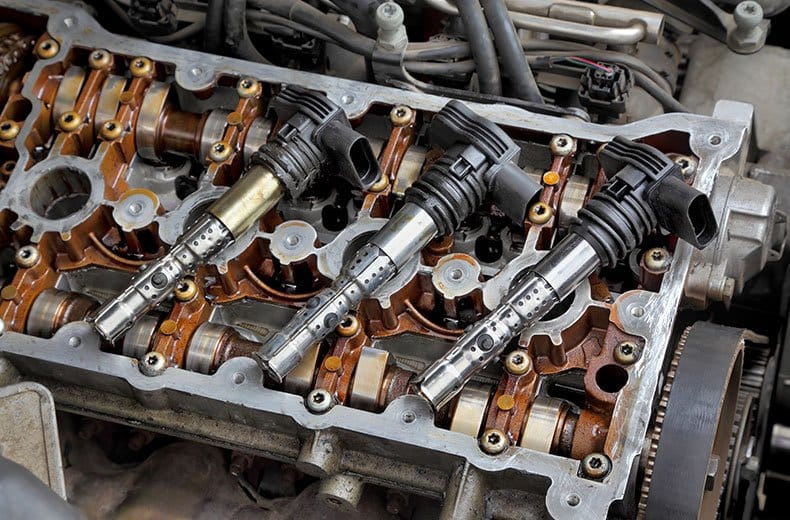
What is an ignition coil?
Another important part of your car’s ignition system, the ignition coil supplies the high voltage (around 30,000 volts) the spark plugs in your engine need to create a spark.
Ignition coil problems
If your car backfires or stalls a lot, it could be a sign your ignition coil is faulty and causing your spark plugs to ignite irregularly.
Like spark plugs, ignition coils are susceptible to general wear and tear, although with mechanics only recommending a new ignition coil every 100,000 miles, a faulty one could signal damage caused by leaking fluids in the engine.
Can I fix an ignition coil myself?
If your coil type is the type that simply fits directly onto each spark plug (sometimes known as a ‘coil per plug’ type) as in the above picture, then yes, it’s relatively easy to unplug the connector and remove the coil unit. If your vehicle has a different type of ignition coil system then it should be replaced by a qualified technician.
Check out our RAC approved garage network if you’d rather leave it to a professional.
Tyres
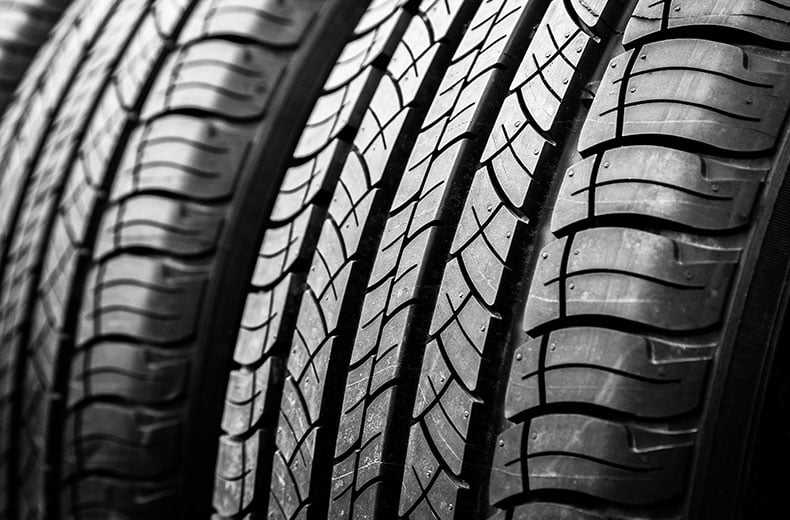
What are tyres?
Your cars tyres are the rubber, inflated rings that encircle your wheels. They’re the only point of contact your car has with the road and from sharp cornering to the plague of potholes, they put up with a lot on a day-to-day basis so you should look after them.
Tyre problems
The entire weight of your car is supported by the air pressure in your tyres, and experts predict poorly maintained tyres could end up costing you around 3% in terms of mileage per tank efficiency.
A flat tyre or a blow-out could be even more serious but can be avoided if you properly maintain your tyres and get them replaced when you see signs of wear and tear. Make sure you always have a fully-functioning spare just in case you need it.
Can I fix tyres myself?
Changing a tyre can be fairly straightforward providing you know what you’re doing. Follow these 10 simple steps on how to change a tyre and you’ll be back on the road in no time.
Not so confident? Enter your reg here to find the right tyres for your car, then choose a local garage to fit them for you.
All RAC patrols carry the RAC Universal Spare Wheel - a multi-fit wheel designed to get you back on the move fast.
Need assistance now? Call the RAC on 03301 598 751 whether you are a member or not.
Spare tyre
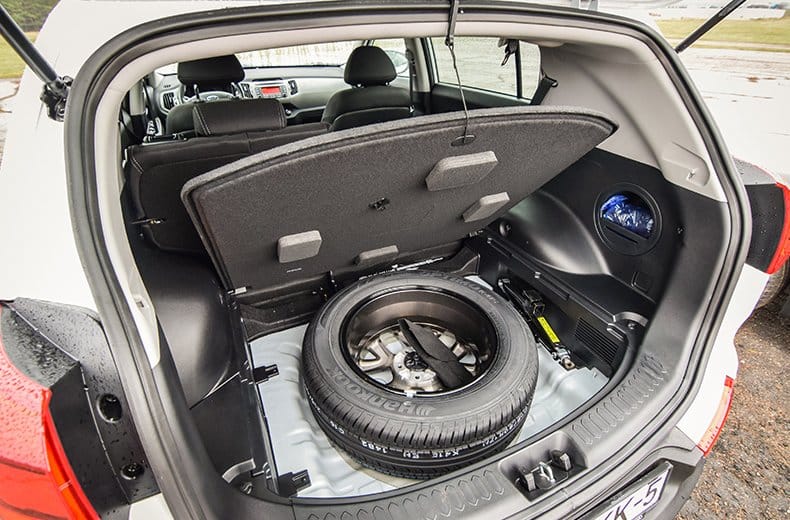
What is a spare tyre?
Usually stowed in your car’s boot, a spare tyre is either a full-size or compact ‘Space Saver’ type of wheel and tyre that’s carried in case one of your tyres goes flat or bursts and you need an immediate replacement.
Spare tyre problems
If you’re using a compact spare, most manufacturers recommend you only drive limited distances and at speeds below 50mph, as these tyres aren’t designed for prolonged use.
Once you’ve used your spare, you should replace it as soon as possible to ensure you have a fully-functioning replacement should you suffer another flat or blow out on the road.
Can I fix a spare tyre myself?
Getting hold of a replacement spare tyre is easy, just take your spare wheel along to your local tyre dealer or your local garage who can supply and fit for you.
Shock absorbers
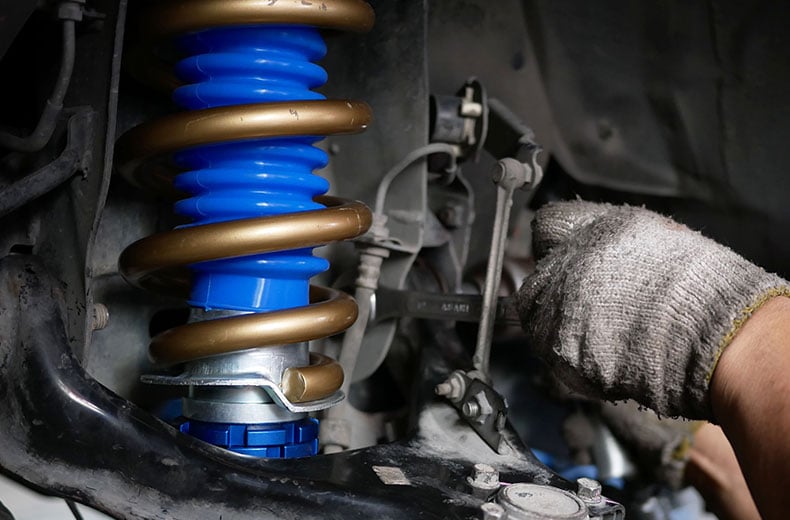
What are shock absorbers?
An important part of your suspension, shock absorbers do what their name suggests: they absorb shocks from bumps, potholes and other road defects to help keep your tyres in contact with the ground at all times. This also provides a comfortable driving experience for you and your passengers.
Shock absorber problems
If your car vibrates or clonks while driving or tends to drift to one side while braking, you could have problems with your shock absorbers and need to get them checked as soon as possible.
These issues could relate to something simple like general wear and tear, or could be a symptom of a ruptured seal or leak within the shock absorber itself.
Can I fix shock absorbers myself?
While it might be possible to repair faulty shock absorbers, mechanics recommend replacing all four at once to ensure your vehicle maintains the right balance.
Shock absorbers should only be replaced by competent technicians at professional repair centres or garages. They are normally fitted in pairs to ensure equal handling characteristics.
To avoid the risk, get a professional to take a look for you.
Brakes
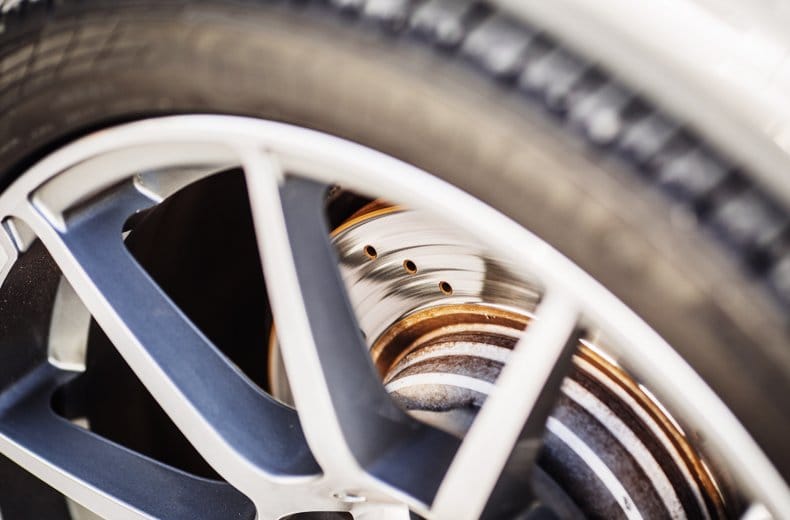
What are brakes?
Clearly one of the most important safety features, brakes slow your vehicle or bring it to a stop when pressure is applied to the brake pedal.
Brake problems
A typical braking system is made up of a brake disc (or rotor), a brake calliper and a pair of brake pads for each wheel on the vehicle (some vehicles may have drum brake arrangement for the rear wheels).
Problems with your brakes could range from something simple, like low brake fluid, to a sticking brake caliper that could see your car pulling towards one side of the road when you brake.
The most common problem with your braking system is likely to come from worn out brake pads, which mechanics recommend changing every 25,000 miles – although they have been known to need replacing after just 15,000 miles
A lot depends on how the vehicle is being driven; harsh and heavy braking will reduce the life of the brake pads considerably. If the pads are not changed when necessary, the brake discs will often need replacing also.
Regular servicing will help to keep your brake system functioning correctly. Check your handbook or consult your dealer for more information.
Can I fix brakes myself?
That depends what’s wrong with them. If you’re running low on brake fluid then it’s simple to top up, but changing brake pads or discs requires specialist skills and knowledge as well as equipment and must be entrusted to competent technicians. See our guide on how to replace brake pads.
If you think there is something more serious at fault, you should check your car into a garage as soon as you can. Brakes are essential safety features and you could be putting yourself and others at risk if your braking system isn’t working correctly.
Air filter
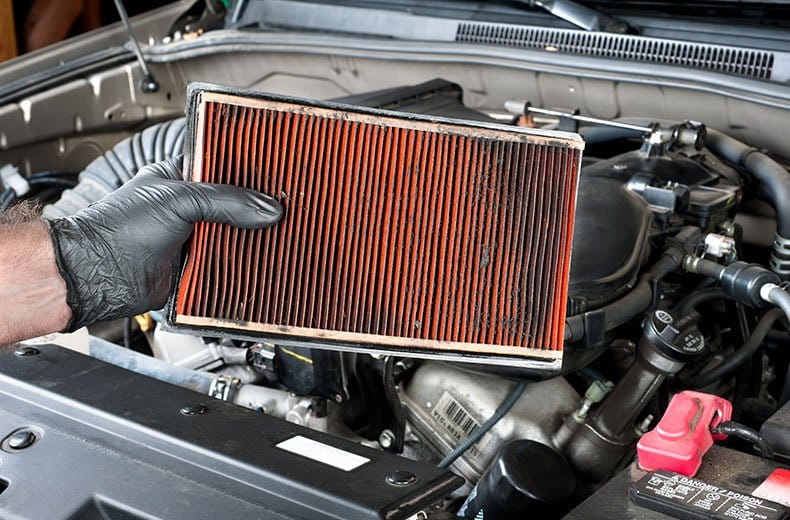
What is an engine air filter?
Your engine’s air filter prevents any debris or dirt getting into it and shouldn’t be confused with the cabin’s air filter, which stops dust or pollen from entering the cabin through the A/C and heat vents.
Engine air filter problems
Over time, air filters become clogged with dust and dirt and a clogged filter can lead to a number of tell-tale signs, including reduced fuel economy, unusual engine sounds and black smoke from the exhaust pipe.
On average, an air filter will last around 30,000 miles or three years (whichever comes first) before needing to be replaced, although this may be reduced considerably if the vehicle is driven in heavy traffic a lot.
Can I fix an engine air filter myself?
Yes, If you think your filter needs replacing, simply locate the filter (usually in a black box under the bonnet) and remove it, making note of how it fits before you insert the replacement and fasten the box back shut.
Check your vehicle handbook for instructions and ensure you get the right part for your vehicle.
Catalytic converter
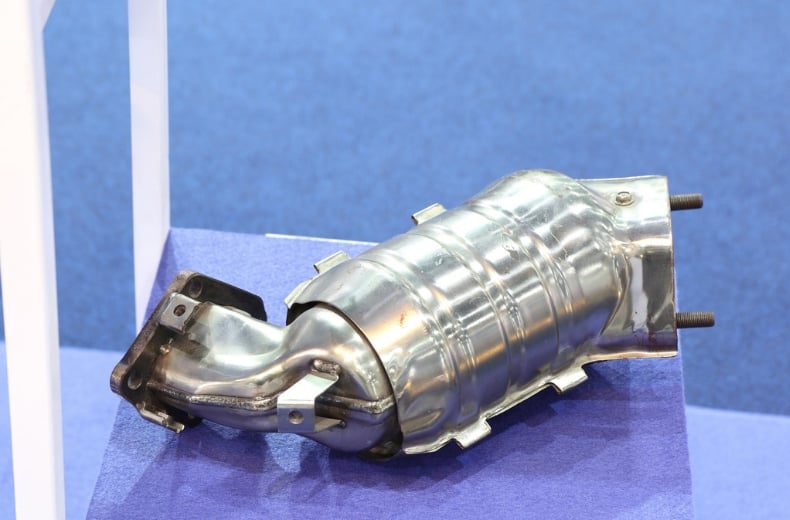
What is a catalytic converter?
Catalytic converters (or “cats”) essentially clean up your car’s exhaust fumes, greatly reducing the harmful hydrocarbons, carbon monoxide, and nitrogen oxide your car releases into the atmosphere via its exhaust pipe.
Catalytic converter problems
Catalytic converters will often last for up to 10 years or more, but they can become contaminated, clogged, or overheated due to various faults in the engine management system. This can cause the cat to restrict the flow of gases passing through the exhaust and affect your engine’s efficiency, causing sluggish engine performance and even a breakdown.
Most modern cars have on-board diagnostic systems which mean a warning light will flash up on your dashboard when you have problems.
In most cases, you can continue driving unless the engine performance is severely diminished, but you should have your vehicle checked as soon as possible by a professional repair garage or dealer. Additionally, the emissions from your exhaust are checked during the MOT process and will fail the test if they are below the minimum requirements.
Can I fix a catalytic converter myself?
No, if the catalytic converter is faulty or damaged, it will require replacement. But you can help to maintain its functionality by using specialist products designed for that purpose like our DIY fuel system cleaner.
Clutch
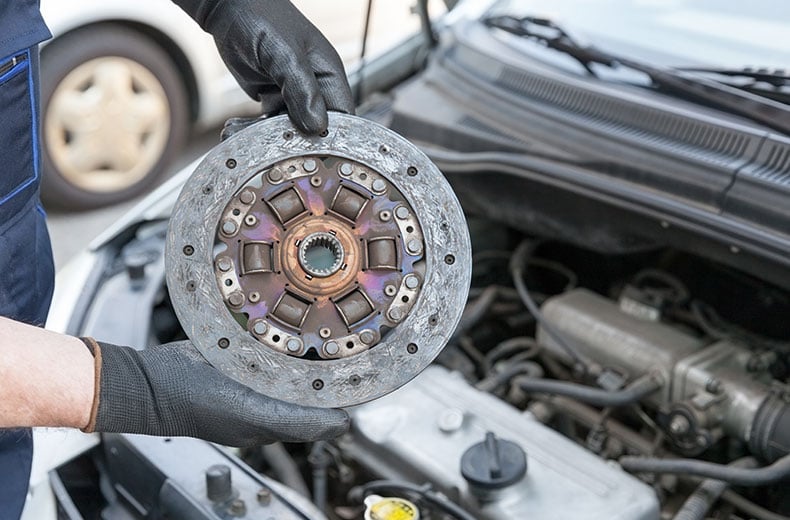
What is a clutch?
For vehicles with manual transmission, the clutch connects the engine and transmission to make sure a car moves smoothly through the gears. Vehicles with automatic transmission have a different mechanism for achieving this.
Clutch problems
Typical symptoms of clutch faults include: ‘slipping’ (i.e. causing a momentary loss of acceleration), squealing, difficulty selecting / changing gear or your clutch pedal feeling ‘floppy’ or stiff.
Can I fix a clutch myself?
Apart from topping up the clutch fluid reservoir (if you have a hydraulic clutch) there is very little if anything you can do yourself to fix a clutch related fault. The replacement of a clutch is a specialised repair and should be entrusted to a reliable garage to deal with.
A faulty clutch is one of the most common reasons for a breakdown, so if you’re in need of assistance right now call the RAC on 03301 598 751 whether you are a member or not.
Gearbox
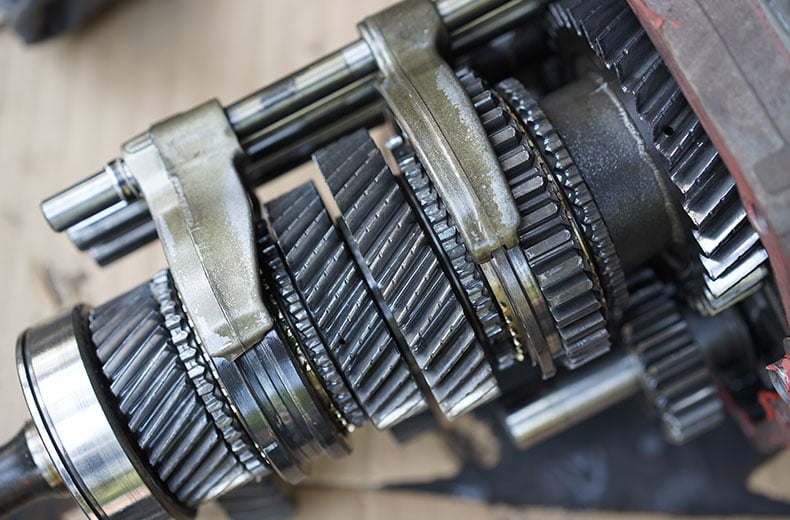
What is a gearbox?
Also known as the transmission, the gearbox transmits the power generated by the engine through sets of gears to the road wheels.
Gearbox problems:
Various faults can occur in the gearbox but tend to be due to general wear in the gears or mechanisms, or in the case of automatics, issues with the transmission fluid.
If fluid is the issue, it could mean you’re running low or have a leak. If you don’t change your fluid regularly enough, this could also lead to a clogged transmission line, which can also cause problems.
Can I fix a gearbox myself?
Due to the design and construction of gearboxes there is virtually no scope to carry out any DIY repairs. As with most major components, regular servicing is key to avoiding problems and faults occurring prematurely.
You should check your motor in with a garage for any gearbox repairs.
- Regular car checks to help prevent a breakdown and keep you safe
- Help! My car won’t start, what do I do?
- 7 things you should never do when driving a manual
Water pump
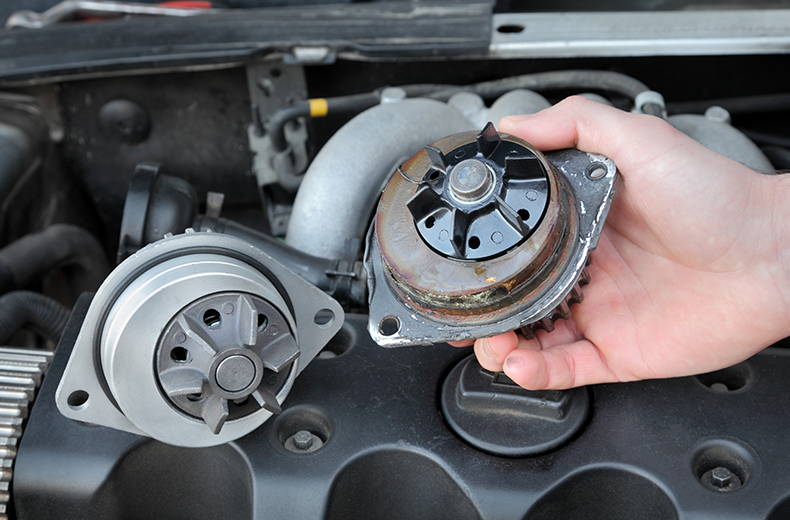
What is a car water pump?
Part of your engine’s cooling system, a water pump circulates the coolant around the engine (where it absorbs heat) and through the radiator (where it dissipates the heat). This ensures the engine runs at its optimum temperature and prevents it overheating.
Car water pump problems
Whether mechanical or electrical, water pumps are prone to failure, especially on higher mileage vehicles.
Typical faults include leaks from failed seals or cracks and bearing failure. Any of these issues will mean you’re going to need a new pump and a fresh tank of coolant to get you back on the road.
Can I fix a car water pump myself?
On modern vehicles, replacing the water pump is not a straightforward task and special tools are often required, so this is a job often best left to the professionals.
Air conditioning compressor
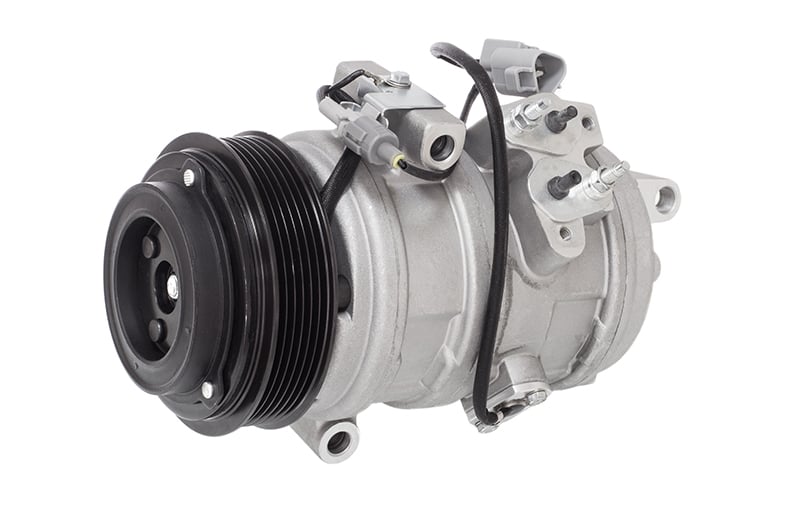
What is an air conditioning compressor?
The air-con compressor is an integral part of the air-conditioning system, compressing the coolant before it goes into the condenser and helping to cool down your cabin.
Air conditioning compressor problems:
If you’ve got issues with your A/C system, it’s likely to be a leak. However, if there isn’t a leak, it could mean your compressor isn’t working.
Unfortunately, there are a number of things that could go wrong with your compressor – from a broken seal to a failing mechanism – and these issues will likely mean you need a whole new compressor unit.
Can I fix an air conditioning compressor myself?
The good news is A/C compressors typically last the lifetime of a car. The bad news is it can be one of the trickier things to fix yourself, so it’s best to let a professional at a garage take care of it.
FAQs
Can you drive a car if the clutch goes?
When a clutch in a car goes, it can cause a number of problems. So do not drive under any cicumstance. Seek help from a mechanic as soon as possible.
What are the signs of clutch failure?
Clutch failure is a common issue that drivers often experience at some point in their lifetime.
Knowing the signs of clutch failure can help you diagnose and address the problem before it becomes more serious.
Here are some common indications of clutch failure:
- Difficulty shifting gears
- Clutch slips when you accelerate
- Loud noises and grinding when you press the clutch pedal
- Burning smell
- Vibrations: If you feel vibrations coming from the clutch pedal or transmission, this could be a sign that something is wrong
What happens when a clutch in a car goes?
The most common symptom of a failed clutch is a grinding or slipping sensation when the clutch is engaged. This usually means that the clutch is not engaging properly, and needs to be replaced.
Other symptoms include difficulty shifting gears, an inability to accelerate properly, and a burning smell coming from the clutch area. If the clutch is not replaced in a timely manner, it can cause further damage to the car’s gear box and other components. This can be costly and time consuming to repair.

SALE – up to 40% off*
Roadside & Recovery from £5.29 a month*
• Cheaper than AA Price Promise or we’ll beat by 20%^
• We get to most breakdowns in 60 mins or less
• Our patrols fix 4/5 breakdowns on the spot






